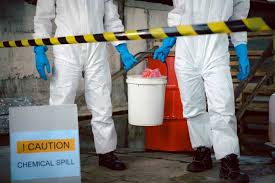When a traumatic event happens, most people don’t think about what comes afterward — the cleanup. Families and property owners are often left asking the same question: how long does crime scene cleanup really take?
The answer isn’t always simple. A professional crime & trauma scene clean can take a few hours in some cases, but in others, it may stretch into days. The timeline depends on several factors, from the type of incident to the size of the affected area.
If you’re facing this difficult situation, here’s what you should know about the cleanup process and what influences how long it lasts.
Why Time Matters in Crime & Trauma Scene Cleanup
Time is about more than convenience. A quick cleanup helps:
- Protect health: Bloodborne pathogens and biohazards can spread disease if not handled fast.
- Restore safety: Cleaning removes harmful materials that make a space unsafe to enter.
- Bring peace of mind: Families and property managers often want life to return to normal as quickly as possible.
But thoroughness is just as important as speed. Professional cleaners must balance both.
Key Factors That Affect Cleanup Time
Several variables determine how long a cleanup will take. Here are the main ones:
1. Type of Incident
- Minor incidents (like a small injury at home) may take only a few hours.
- Violent crimes or traumatic events often leave behind more contamination, extending cleanup to 1–2 days.
- Unattended deaths can require multiple days because of decomposition and odors that spread beyond the immediate area.
2. Size of the Affected Area
A small bedroom is very different from an entire house or commercial property. Larger spaces require more time, more staff, and more equipment.
3. Level of Contamination
If biohazards seep into flooring, walls, or HVAC systems, cleanup takes longer. Sometimes flooring or drywall must be removed and replaced.
4. Specialized Equipment Needed
Standard cleaning tools aren’t enough. Professional teams often use:
- Industrial-strength disinfectants
- Ozone or hydroxyl machines for odor removal
- Protective gear to meet OSHA safety standards
The more equipment required, the longer the process.
5. Legal and Safety Requirements
Cleanup must follow strict rules to protect workers and future occupants. Waste disposal regulations, safety checks, and inspections add to the time but ensure everything is done correctly.
Typical Cleanup Timelines
Here’s a general look at how long different situations might take:
| Situation | Average Cleanup Time | Notes |
| Small blood spill | 2–4 hours | Limited to one area |
| Violent crime scene | 12–24 hours | May involve multiple rooms |
| Unattended death | 1–3 days | Odor removal and deep cleaning often required |
| Large property or commercial site | 2–5 days | More staff and equipment needed |
Note: These are averages — every case is unique.
Why Professional Cleanup Is Essential
It might be tempting for families or property owners to clean up themselves to save time. But DIY cleanup can be dangerous. Biohazards like blood and body fluids carry risks that aren’t always visible.
The CDC warns that exposure to pathogens such as hepatitis B, hepatitis C, and HIV can happen through small cuts or even splashes to the eyes and mouth. Professional teams are trained and equipped to handle these dangers safely.
Beyond health, professionals also understand the emotional impact. Families shouldn’t have to relive trauma by handling the cleanup themselves.
The Bottom Line
So, how long does crime scene cleanup take? It depends — sometimes just hours, sometimes several days. The size of the area, the level of contamination, and the type of incident all play a role.
What matters most is that the work is done thoroughly, safely, and respectfully. Professional crime & trauma scene clean services in Fort Worth provide not just cleanup, but also peace of mind for families and property owners during one of the most difficult times they may ever face.











































































